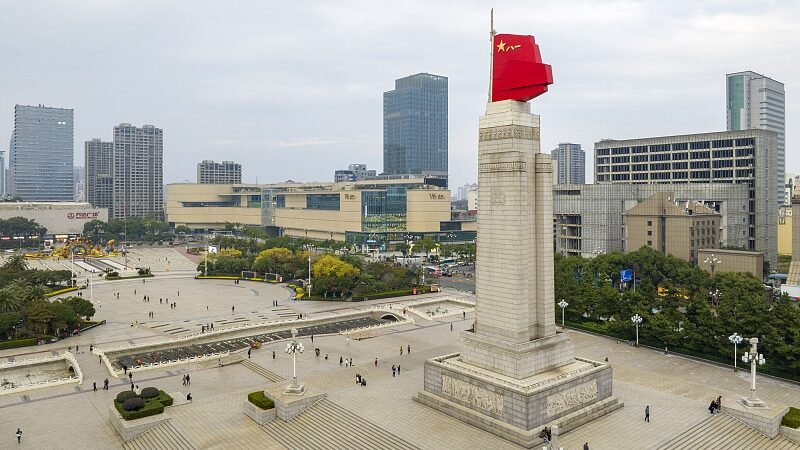Perched gracefully on the southern bank of Taihu Lake, the Wuxi Grand Theater stands as a beacon of cultural innovation and architectural brilliance in Wuxi City, east China's Jiangsu Province. Covering more than 70,000 square meters, this grand edifice is not just a theater but a symbol of the rich and diverse beauty that Wuxi has to offer.
A Marvel of Modern Architecture
The Wuxi Grand Theater's design is a harmonious blend of contemporary aesthetics and traditional Chinese elements. Its unique structure, reminiscent of a butterfly spreading its wings, captures the imagination of visitors and locals alike. The theater's expansive glass facades reflect the tranquil waters of Taihu Lake, creating a mesmerizing interplay of light and shadow.
Cultural Hub of Wuxi
As one of Wuxi's key cultural projects, the theater serves as a premier venue for a variety of performances, including opera, ballet, symphony concerts, and theatrical productions. It has become a gathering place for artists and art enthusiasts, fostering a vibrant cultural scene that enhances the city's global appeal.
Exploring Wuxi's Rich Heritage
Beyond the theater, Wuxi offers a wealth of attractions that showcase its historical and cultural significance. From ancient temples and serene gardens to bustling markets and modern museums, the city invites travelers to immerse themselves in its unique blend of old and new.
Plan Your Visit
Whether you're a culture enthusiast, business professional, or simply looking to explore new destinations, the Wuxi Grand Theater and its surroundings provide a captivating experience. Its proximity to Taihu Lake adds to the allure, offering picturesque views and a serene atmosphere.
Join us as we delve into the splendor of Wuxi and discover why this city continues to enchant visitors from around the world.
Reference(s):
cgtn.com








